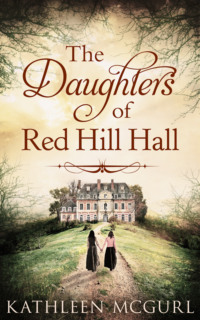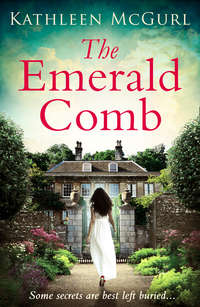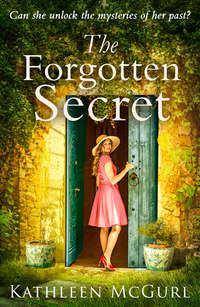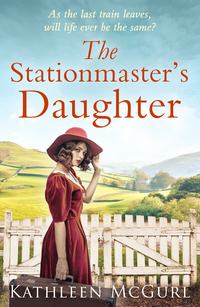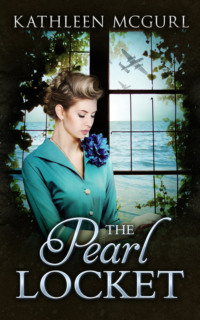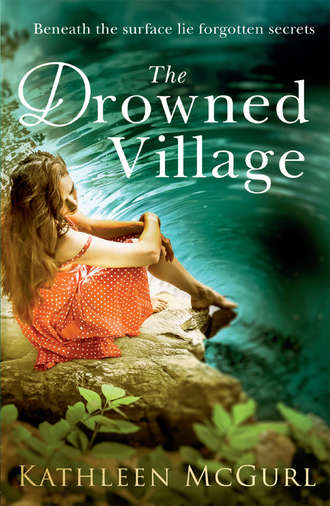
Полная версия
The Drowned Village
At the campsite she parked outside the wooden building which served as an office and small shop, and went inside to check in.
‘You’ve come at a good time,’ the girl who was manning the desk and cash register told her. ‘The kids go back to school this week, so all the families left at the weekend. We’re half empty so you can pick your pitch. Down beside the stream is nice, and there are a few trees for shade if it gets too hot.’
‘Sounds lovely!’ Laura said, accepting a map of the campsite which showed where the amenities – shower block, toilets, launderette – were sited.
‘We open the shop at eight each morning, and there’ll be fresh bread and croissants, plus bacon butties, coffee and tea if you don’t want to cook your own breakfast. We can do packed lunches too, if you’re off up the fells.’
Laura grinned. ‘Perfect. What more could a camper want?’
The girl smiled back. ‘We aim to please. A detailed weather forecast for the next day is pinned on the door each afternoon. Worth checking before you set out, but I can tell you there’s no danger of rain until at least Friday. So, there’s your tag to hang on your tent, and a sticker for your car windscreen. As I said, take any pitch you want.’
‘Thanks so much. I think I’m going to enjoy camping here,’ Laura said. She turned to leave, and almost bumped into a sandy-haired man who she hadn’t noticed was standing behind her, waiting to pay for a pint of milk and a pack of sausages. ‘Whoops! Sorry.’
‘No problem,’ he said. ‘You missed standing on my foot, so that’s OK.’ He smiled, an attractive, slightly lopsided smile that made his grey eyes crinkle at the edges. ‘You’ve just arrived? I can recommend those pitches beside the river. Perfect to cool your feet after a hot day walking in the hills.’
‘Thanks, I’ll go and check it out,’ Laura replied, as she left the office.
‘Enjoy your stay.’ He waved, then turned to pay for his shopping.
That bloke was right, Laura thought, as she drove slowly around the campsite, checking out the available pitches. The area beside the stream was definitely the most inviting, and there was a large pitch free beside a spreading oak tree. She pulled out her compass to check which way was east. Always good to have some shade in the mornings, or the heat of the morning sun could drive you out of your tent before you’d had a chance to have a decent lie-in. Looked like the tree would do the job, so she parked her car, opened the boot and began setting up camp.
The tent was brand new. As was her sleeping bag. In the end, she’d avoided a possible confrontation with Stuart by treating herself to new kit. For summer camping, cheap festival gear was good enough. It only took her half an hour to get everything set up, and her little camping gas stove (also new) up and running to make a cup of tea. She unfolded a deckchair she’d found in Gran’s shed, set it in the sunshine and sat down to wait for her pot to boil. Behind her, the little stream was chuckling to itself like a giggling child as it bubbled over stones down the valley. Ahead of her was the most amazing view, framed by branches of the oak, across the valley to the fells. She’d need to pull out her detailed map of the area to work out which ones they were, but already she could see an enticing-looking path zigzagging its way up one of them. But that would have to wait – tomorrow she wanted to go to Brackendale. She sighed with contentment. It was shaping up to be a very good week.
It was years since she’d last been camping. Stuart’s style was more suited to package holidays in Ibiza – sunshine, booze and partying. She’d gone along with it because she loved him and loved being with him. And they’d had fun. At least, she’d thought it was fun at the time. Looking back, she wondered why she’d never pushed for them to try a different type of holiday. One that didn’t involve daily hangovers. Would he have agreed? Who knew? If he had, it might have left them with a healthier relationship – one in which they were more of a partnership. She could see it more clearly now they’d been apart a few months – theirs had not been a relationship of equals. She’d always done whatever Stuart wanted, as though she was his pet lapdog. Perhaps it was as well it had finished the way it had, allowing no way back, although she did miss the intimacy. She missed having a best friend, too, and knew it would be ages before she could trust anyone fully again.
She spent the evening lounging outside her tent, cooking a simple meal of pasta with grated cheese, which tasted amazing when accompanied by a glass of Pinot Noir. She read books until the sun went down behind the mountains, took an evening walk around the campsite, called Gran to check she was all right, then put herself to bed early, just as it was getting dark, tired after the long drive north. Maybe the Lake District was already working its magic, as she managed to doze off without crying herself to sleep.
The following morning dawned bright and clear, but despite the shade of the oak the inside of the little tent was stifling hot by eight o’clock. Laura dressed quickly in shorts and a T-shirt, and bought coffee and a bacon butty from the campsite shop. As she ate them she studied her map, and realised the zigzag path she could see going up the fells on the other side of the valley led into Brackendale. It was marked on the map as the Old Corpse Road. ‘Interesting name for a footpath,’ she muttered to herself, making a mental note to google it at the next opportunity. It looked to be about three kilometres to walk, with four hundred metres of ascent, from the campsite to Brackendale, and on a day like this why not walk it rather than drive around? She packed her rucksack with a bottle of water, a hastily made sandwich and some snacks, donned her walking boots and set off.
To begin with her route took her along the lane going further up the valley, past a church with its overgrown graveyard, full of lopsided lichen-clad gravestones. A little further on, a public footpath sign pointed the way to ‘Brackendale via Old Corpse Road’.
The track wound its way between acres of waist-high dried-out bracken, then began the zigzags she could see from the campsite, where heather and outcrops of rock flanked the path. As she climbed higher the temperature seemed to increase as there was no shade and very little breeze. The land smelt dry and dusty. She sat to rest on a flat-topped rock that was just to the side of the path, wondering whether it was natural or had been placed there for some reason. She took a gulp of water from her bottle, wishing she’d brought more than one as she was not at the top of this climb and it was half gone already.
As she walked she found herself thinking about her clients, and wondering how they were getting on without her. Of course the agency would be sending alternative carers, but some clients always told her how much they looked forward to Laura’s visits. Like dear old Bert Williamson, who always had a joke ready for her every time she came. As often as not it’d be one she’d heard before – usually from Bert himself the previous week, as his memory was not the best – but she’d chuckle anyway and tell him he was such a card, as she got him washed, dressed and ready for the day. And lovely Ada, where her morning calls would always include helping the old lady pick out earrings and a necklace to match her outfit for the day. Her job paid poorly but it was so meaningful and worthwhile, and people like Bert and Ada made it enjoyable. The worst moments were when she arrived at a client’s home to find them very sick, and she’d need to call an ambulance and send them off to hospital, knowing there was a strong chance they wouldn’t come home again. Her training had taught her not to get too involved with clients, but sometimes she couldn’t help it.
At last the gradient levelled out and she found herself crossing a rounded hilltop, land that might be boggy in a wet season but currently was formed of hardened mud, with the path winding its way through. The view changed – now she could see a new range of higher hills that must be on the far side of Brackendale looming on the horizon. Eventually the path began to lose height and then suddenly, as it turned a corner, there it was – the whole valley of Brackendale laid out before her. She gasped at the sight. Away over to her right she could just see the dam, and a small lake, not much more than a pond, this side of it. A huge expanse of muddy lake-bed covered the rest of the valley floor, just as she’d seen on the TV news report. Around the edges was a fringe of pebbles, as though normally the reservoir had a bit of pebble beach. The valley sides were lined with trees. She squinted, trying to pick out the ruins of the village amongst the dried mud, but from this height it was difficult to be sure what she was seeing. It would be nice to have a companion, someone to talk to about what they could see, but of course there was no one. Stuart would never have come on this type of holiday. Neither would Martine. With a jolt Laura realised those two were probably well matched after all. She sniffed back the tears that threatened to fall, pushed all thoughts of Stuart out of her mind and picked up her pace on the descent, desperate to get down to the lakeside and start exploring.
The bottom of the track led into a car park, after crossing a stile. There were a number of cars parked there, presumably either hikers or tourists who’d come to see the empty reservoir. An information board beside the car park gave a few sketchy details about the history of the valley and the building of the dam, complete with a grainy photo of what the village of Brackendale Green looked like in the early 1930s. Laura peered closely at this, noting the church, a pub, a bridge over a stream, a group of cottages tightly packed in what was presumably the village centre, and then some more scattered cottages and farm buildings further out. She lifted her head to look at the dried lake-bed, where she could now clearly see the low, broken walls that the TV reporter had pointed out. She tried to map buildings shown on the photo against the ruins but from where she was standing it wasn’t possible. Time to venture onto the dried mud and explore it properly.
She crossed the car park, walked a little way along the lane that would normally hug the shores of the lake, then when she was near to some of the ruins she left the road, crossed the band of pebbles and tentatively set foot on the grey mud. It was rock solid, criss-crossed with cracks from the weeks of sunshine, and smelt a little of rotting vegetation, as any aquatic plants the lake had hosted had long since perished in the dry heat. More confident now that she’d discovered how firm the mud’s surface was, she set out across it to the nearest piece of wall. It was about waist high, with mounds of rubble inside, and a clear doorway. On the opposite side to the door were the remains of a window, complete with some green-glazed tiles on the inside ledge. Laura entered the cottage, and immediately felt the surface beneath her feet change, as though there were only a couple of inches of dried mud on top of a more solid base – stone flags, she presumed.
The next cottage felt different underfoot. She knelt down and rubbed at the dried mud with her fingertips, discovering wooden floorboards beneath. Presumably pretty rotten after eighty years underwater, so she left that cottage quickly.
There was someone else crossing the lake-bed towards the ruins. As he approached she recognised the sandy-haired man from the campsite. He was heading directly for her, and raised a hand in greeting.
‘Amazing, isn’t it?’ she said, when he was within earshot.
He smiled, and pushed a hand through his hair. ‘Certainly is. To think people once lived here, walked up this street, went into their homes or shops or pubs.’ He turned and gazed across the remains of the village, then pulled a bottle of water out of his rucksack and offered it to her. ‘I can’t believe how hot it is, either.’
‘I know. Boiling. But I’ve got my own water, thanks.’
They began walking along what must once have been the main street through the village, with remains of buildings tightly packed on both sides. ‘I’m Tom, by the way,’ he said, holding out his hand for her to shake.
‘Laura. Pleased to meet you.’
‘So did you come here especially to see the remains of the village?’ he asked.
She nodded. ‘Well, yes, but also to have a holiday and do some walking. I adore the Lake District.’
‘Me too. I’ve been here a week already, climbing with a mate. He’s a teacher so he had to leave at the weekend and go back to work today. But the weather’s so amazing I decided to stay for a few more days on my own as I’m not due back in the office till next week.’ He stopped and once more looked around at the ruins, then spoke quietly, almost to himself. ‘I wonder which one it was.’
‘Sorry?’
He shook his head slightly as though coming out of a daydream. ‘Sorry. Just musing. I’ve researched my family tree, you see, and one branch of my ancestors came from here.’
‘Wow, that’s amazing! My grandmother was born here, too. That’s one reason why I came. We saw an item on the news about it, and she told me then she was born here. I hadn’t known. She’s a bit too frail to make the trip up here herself, though.’
‘Do you know which house she lived in?’
Laura shook her head. ‘No, I’ve no idea.’ She looked up at him and smiled. ‘Weird to think our ancestors might have known each other. Who was it in your family tree who lived here? How long ago?’
‘My dad’s maternal grandmother. That’s my great-grandmother – she was the last of the family to live here. Her daughter, my grandmother, was born elsewhere, during the war. My great-grandmother married, had her daughter and was widowed all during the war years. Your grandmother must be quite a bit older than mine, if she was born here.’
‘She’s over ninety.’
‘A great age. Does she have any memories of being here?’
‘Yes, some, I think, though she hasn’t spoken much about it.’
‘You should ask her.’
‘Yes. I could ask her too for names of anyone she remembers from those days. But she was only about ten or eleven when the village was abandoned so she might not remember anyone. What was your great-grandmother’s name?’
‘Margaret Earnshaw.’
‘My gran is Stella Braithwaite. But that’s her married name. I’m not sure what her maiden name was. I need to make a list of all these questions to ask her!’ Laura grinned. It was great to have someone to talk to about all this, and Tom certainly seemed interested.
‘It’s fabulous that she’s still around to ask. My grandmother died a few years back so most of what I know is from online research. In fact, it was when she was diagnosed with cancer that I began researching my family tree. I recorded her speaking about the past, everything she could remember, to give me a start. But she never lived here, and she said her mother, Margaret – though everyone knew her as Maggie – never spoke about her early life.’ Tom sighed. ‘So I’ve no one to ask. The people who lived here are all just names and dates to me.’
They’d reached the end of the main village street, and come to a small stone bridge. It looked incongruous sitting there in the middle of the lake-bed, a bridge crossing nothing. ‘This must have been the footbridge over the stream that flowed through the valley to the original small lake. It’s marked on the old maps of the village,’ Tom said. ‘Amazing that it’s still in such good condition.’ He ran a hand over the stonework. He was right – the mortar between the stones appeared solid, the surface of the bridge looked as though a quick sweep would restore it to perfect condition.
They turned and looked back at the village. ‘I really want to know more about it now,’ said Laura. ‘Coming here has made it all very real. I can’t wait to ask Gran to tell me more about it.’
‘Why don’t you ask her now? You could ring her, perhaps? Maybe she could describe whereabouts her house was. And I’d love to know if she remembers any Earnshaws.’
Laura looked at her watch. Monday, midday. Gran would be at home, pottering around the house, perhaps thinking about making herself a light lunch. She had no lunchtime carer visit, so unless one of her many friends had come to call, she’d be on her own, and hopefully the phone would be within reach. ‘OK, I’ll try her now.’ She pulled out her mobile and punched in Gran’s number. Thankfully, standing out here in the middle of the valley there was some reception. She felt a quiver of excitement as she waited for Stella to answer. Would she be able to pick out the right house? What a shame Gran was not fit enough to be able to come here herself.
Chapter 4
JED
‘Stella, watch Jessie for me, will you?’ Jed called from the workshop, where he was trying to file down a piece of metal to make a replacement bracket for the seat of old Sam Wrightson’s tractor. Jessie, now that she could walk, was becoming difficult to look after when he was trying to work. While she’d been a baby he could put her in the playpen he’d made from chicken mesh, with a few toys, and she’d amuse herself. She’d always seemed happy enough as long as she could see him. But now, she refused to go in the playpen and if he put her in it she simply lifted one side of it up and crawled out underneath, giggling in that infectious yet infuriating way she had. And then she’d stand too close while he was welding, or start lifting tools off his bench to play with, or try to play hide-and-seek under the workbench. It was really not a suitable place for a small child to be.
‘Yes, Pa, coming.’ Stella was just home from school, thank goodness, and if she could keep an eye on Jessie for a couple of hours Jed would be able to get on with some work, until the light failed. He had electric light in the workshop, but was short of oil for the generator – what little he had needed to be conserved.
‘Come on, Jessie. Let’s go and look for tadpoles. Pa, we’ll be down by the lake. I won’t let Jessie get wet.’ Stella retrieved Jessie from the pile of oily dust sheets she’d been hiding in, and took her by the hand.
‘Be back in time for tea,’ Jed said.
‘All right.’ Stella and Jessie left the workshop, and Jed heaved a sigh of relief. He could get on uninterrupted at last. And he needed to. If he didn’t get some of his backlog of jobs finished he wouldn’t be paid. That would mean no more oil for the generator, no new clothes for Stella who was rapidly growing out of her school uniform, and no food on the table. Life was indeed hard. He still missed Edie with a pain that felt like an iron fist punching him in the gut. He’d promised her the girls would want for nothing. He would provide for them, no matter what it took.
‘Jed? Hello! I saw Stella go out with your little one, so I guessed you’d be on your own now. Let me make you some tea – I’m sure it’s about time you sat down for a rest.’ It was Maggie.
Jed sighed, and put down his tools. ‘I could do with a cuppa, it’s true, but I’ve not the time to sit down to drink it.’
‘Oh, you will. It’ll only be a few minutes. I’ll pop into your kitchen and make the tea then, shall I?’ Maggie didn’t wait for an answer, but went through to his cottage straight away. He continued working while she was there, feeling vaguely uncomfortable about her being in his home on her own, poking about in what he still thought of as Edie’s kitchen. But, he berated himself, she was only being kind and neighbourly. And he could certainly do with the tea.
She was back a minute later with a steaming mug, and a slice of fruit cake. He pressed his lips together. That cake had been a gift from Mrs Perkins at the village shop, and he’d been saving it for the girls’ tea. But if he told Maggie that, it would be admitting how much he was struggling.
‘Thank you.’ He took the mug and sat on a stool beside his workbench.
Maggie pulled a battered chair forward, brushed it off, and sat tentatively on the edge of it. ‘Any time. I’m here for you, you know. Anything I can do to help.’
Take Jessie for a few hours each day, Jed thought, but he’d tried that once when Edie was sick and it hadn’t worked out. Jessie hadn’t taken to Maggie, and she’d ended up bringing the tantrumming child back to him after only an hour, saying she was uncontrollable. ‘Thanks, Maggie.’
She smiled, patted her hair, and pulled her chair a little nearer him. ‘Remember, any time you need anything, anything at all, you know where I am.’
‘Thanks,’ said, again. ‘Actually, Maggie . . .’
‘Yes?’
‘I just need some time to get on with my work. Stella’s taken Jessie out for an hour or so, and I need to get this piece finished for Sam Wrightson’s tractor seat, and at least one of those bicycle repairs done, and the knife-sharpening for Mrs Perkins, before they come back.’
‘But it’s already five o’clock. Surely it’s time to stop work for the day? We could go across to the Lost Sheep for a drink while they’re out.’
He shook his head. ‘No, Maggie, I really must get this work done now.’
‘Oh, well. Later, perhaps? When the little one’s in bed? Your Stella can babysit.’
‘I might be in the Sheep for a pint later,’ he said. It was Friday after all, and it had been a tough week. With Stella home all weekend he could catch up on his work then.
Maggie smiled wolfishly, and once more patted her neatly waved blonde hair. ‘I shall see you there, then,’ she said. She stood up, brushed down the back of her skirt, and leaned over Jed to kiss his cheek. Her blouse had a couple of buttons undone, and he averted his eyes to avoid seeing straight down the front of it.
‘You’re blushing!’ she said, with delight. ‘It was only a peck on the cheek, you silly man!’ She flounced out of the workshop, stopping at the door to waggle her fingers at him. ‘See you later!’
He let out a huge sigh. Well, at least now he could get on at last. He finished his tea, took the uneaten slice of cake back through to the cottage, and continued working until Stella came home with a tired but happy Jessie.
After tea, when Jessie was fast asleep and Stella ready for bed but snuggled with a book beside the kitchen stove, Jed fetched his cap and jacket. He was tired, but a pint would help him sleep. Too often these days he lay awake for hours fretting over the future. ‘I’ll be off to the pub then, lass. You know where I am if you need me.’ The pub was less than fifty yards up the lane from the cottage, so he had no qualms about leaving the girls on their own.
‘We’ll be fine, Pa. I’ll be off to bed at the end of this chapter anyway.’ Stella yawned, then reached up to kiss his cheek. ‘Night-night.’
He gave her a squeeze and kissed the top of her head. What a good daughter he had! She’d taken on so many responsibilities since Edie’s death, and yet nothing seemed to faze her. She was so grown up, and yet still able to play as a child should, with Jessie or her schoolmates.
Before going to the pub he walked to the other end of the lane, where, on the edge of the village, was his father’s tiny cottage. He tapped on the door but did not wait for an answer – Isaac was a little deaf and more often than not, asleep beside his fireplace. The door led straight from the lane into the front room, which was both kitchen and sitting room. Behind it, at the back of the cottage, was a bedroom, and outside in the yard, a privy.
As usual, Isaac was sitting in his armchair, head tilted back, snoring loudly when Jed entered. He gently shook the old man awake, then banked up the fire.
‘All right there, Pa? Have you had your dinner?’
‘Aye, nice bit of lamb stew. Maggie brought it, bless her.’
Jed raised his eyebrows at this. Was this another of Maggie’s attempts to get into his good books, or just an example of neighbourly kindness to an old man? ‘Good of her. Was it nice?’
‘Aye. Could have done with a pudding, after. You’re not looking after me enough, lad. All day here, on my own, and only for Maggie coming in I’d be starving by now.’
‘I’m here now, aren’t I? And if you hadn’t eaten already I’d have fetched you something.’


